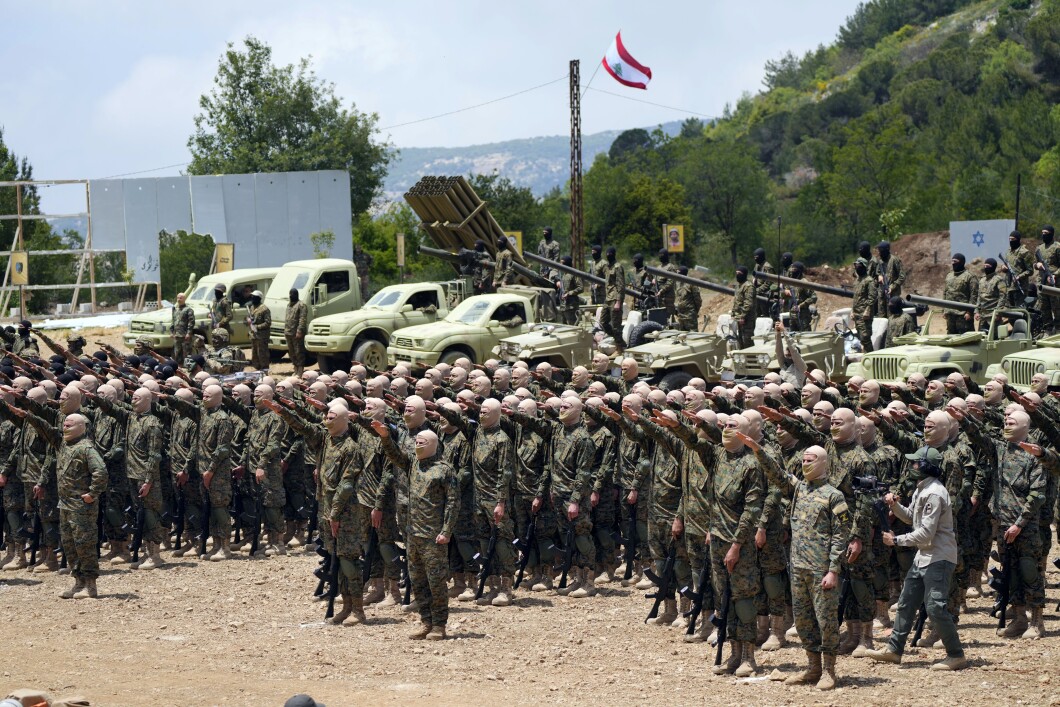
Following the outbreak of war with Hamas, Israel has to worry about more than the group that shocked them with a surprise attack. The main concern from Israeli analysts wasn’t from the group that started the conflict, but instead a group across the northern border — Hezbollah.
Hezbollah, founded in the 1980s during Lebanon’s civil war, has since grown to become the single most powerful force in the country, greatly outmatching the army of the Lebanese state. Israeli war plans in the current conflict are being shaped by the prospect of Hezbollah joining the conflict, with reports that an Israeli Defense Forces invasion of the Gaza Strip was called off due to concerns about the group.
SPEAKER RACE LIVE ENDORSEMENT TRACKER: WHO’S SUPPORTING WHO IN THIRD CONTEST

Hezbollah and Israel have already exchanged blows across the Lebanese border since the beginning of the Gaza War earlier this month, though these have been limited to small exchanges of rockets, air strikes, artillery fire, and small arms fire. Neither has made incursions across the border for the time being. Many experts fear that could change.
The Washington Examiner spoke with Jonathan Schanzer, senior vice president of the Foundation for the Defense of Democracies, to get better insight into the strength and capabilities of Hezbollah.
How strong is Hezbollah?
“The military might of Hezbollah is believed to be roughly that of a medium-sized European country,” Schanzer said.
In terms of manpower, he estimates that Hezbollah has anywhere from 30,000-50,000 fighters “trained to one level or another,” with the possibility for that number to double when taking into account people associated with the movement who could be deployed. The group benefited from training, intelligence, and tactics learned from the Russians while fighting alongside them in Syria, and also has experience in Iraq and even possibly Yemen.
In terms of firepower, it boasts a minimum of 150,000 rockets, almost entirely provided by Iran, which range in quality from inaccurate short-range to deadly accurate long-range missiles. The main fear comes from its Precision Guided Munitions, which can strike Israel from great distances with great accuracy. Schanzer estimates Hezbollah has anywhere from 500-1,000 of these weapons in its arsenal.
Most worryingly for the United States, if it were to get involved, are Hezbollah’s anti-ship capabilities. The group is known to have some of these weapons in its possession and has used them with some success against targets close to the shoreline in the 2006 Lebanon War. However, the exact current anti-ship capabilities are largely unknown, and possible damage to U.S. carriers is reliant on how close to the shoreline they would get.
How likely is it that Hezbollah will join the war against Israel?
The million-dollar question that the intelligence community is trying to figure out is whether or not Hezbollah would go through with its threats and open up a second front against Israel in the event of a ground invasion of Gaza. The primary downside is the knowledge that Israel would inflict unprecedented destruction against Lebanon in the event of another war, which largely serves as the main deterrent. However, the group rests most of its legitimacy on being a foil to Israel and would plummet in prestige if it sat back while Hamas was destroyed.
But as Schanzer pointed out, the final decision is reliant on Ali Khamenei, the supreme leader of Iran.
“I think there is a very real potential for an escalation. And a lot of that actually, really, the decision … to enter into a multi-front conflict, will be determined largely by the supreme leader of Iran,” he said. “There is a school of thought that says that this guy is getting up there in age. He’s in his 80s. He’s not been well. And he may be trying to stoke a war with Israel as the culmination of his life’s work.”
While some believe the prospect of Lebanon’s destruction would be too much to overcome, others see the present situation as the scenario for which Hezbollah was born.
“I think that Hezbollah was made for this moment and would very much like to go in, and Iran probably would welcome it, if not even urgent,” Schanzer said.
CLICK HERE TO READ MORE FROM THE WASHINGTON EXAMINER
He believes that the current level of escalations points to the strong possibility that Hezbollah is looking to intervene.
“I think there is an above-average chance of a multi-front war, given their inclinations and temptations,” Schanzer said. “Thinking that maybe there’s blood in the water after the 10/7 attack by Hamas.”





